

Strategic Plan 2020-2030
The Changing Earth: Working Together for a Sustainable Future
Our Vision and Mission
Vision
The College of Earth, Ocean and Environment (CEOE) at the University of Delaware seeks to be a leader by advancing the scientific understanding of the ever-changing coupled Earth and human systems through interdisciplinary research and teaching. CEOE seeks to ensure that our science serves society by informing policy and engaging communities at local, national and global levels.
Mission
Through leading-edge interdisciplinary research and education, CEOE explores and addresses complex issues of planetary-scale sciences of the Earth’s systems, supports resiliency for long-term sustainability, and prepares future generations of leaders, all in partnership with academia, government, businesses, and communities.
We are now nearly two years into our 10-year strategic plan, and while they were two years unlike anything we might have expected, we have nonetheless made some progress on the goals described below. We have grown undergraduate enrollment in our college’s majors. We have invested in work to increase our diversity, inclusion and equity. And we have launched a new climate change science and policy hub, leading the University in broad approach to finding solutions to some of today’s most challenging problems.
Each year these past two years, all of the colleges at UD have been asked by our provost to identify just three priorities for the upcoming year, an exercise that helps narrow the many ambitious ideas in our strategic plan to a manageable number to focus on for a more limited time. Those priorities may contain multiple tasks, but it helps keep our focus on the things most needed right now.
For this academic year, CEOE is concentrating on continuing to advance our diversity efforts, enchancing our research and teaching, and reaching larger numbers of students and stakeholders. In diversity, we will be conducting a workload transparency audit and requiring further training for everyone in the college. In research and teaching, our focus will be on advancing the Climate Change Hub, establishing programs with Delaware high schools, and increasing our research proposals. And to expand our reach, we are expanding winter session and online courses, including for an entire certificate program, and seeking to grow public-private partnerships in southern Delaware.
A strategic plan, especially one covering a decade, is an every-changing, living document, and we at CEOE are continually revisiting and evaluating ours with the goal of identifying the best ways to better serve our students, our society, and the planet. I hope you will look for your own place to contribute to these efforts as a member of the College of Earth, Ocean and Environment community.
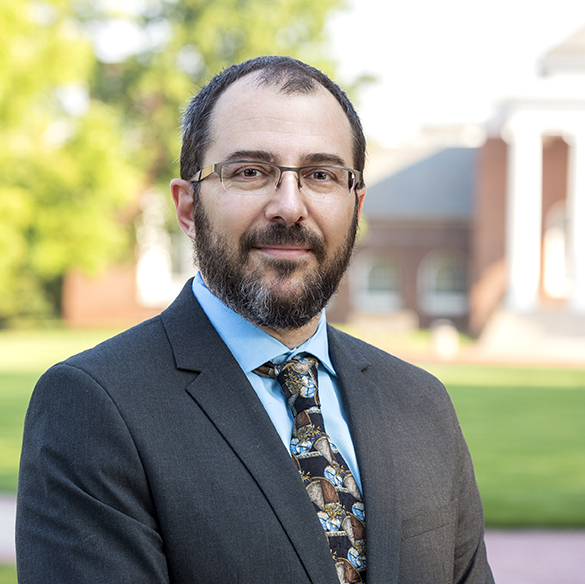
For this academic year, CEOE is concentrating on continuing to advance our diversity efforts, enchancing our research and teaching, and reaching larger numbers of students and stakeholders.
The College will build upon its legacy of excellence in fundamental and applied research and exemplary education to develop thematic, interdisciplinary areas that engage students, faculty, stakeholders, and decision-makers. The strategic plan focuses on six goals. Achieving our goals will require that we all work together and engage administrators, faculty, staff, and students from both academic and administrative units across the College and the University.
Delivering Exemplary Academic Programs that Inspire Students and Produce Impactful Leaders
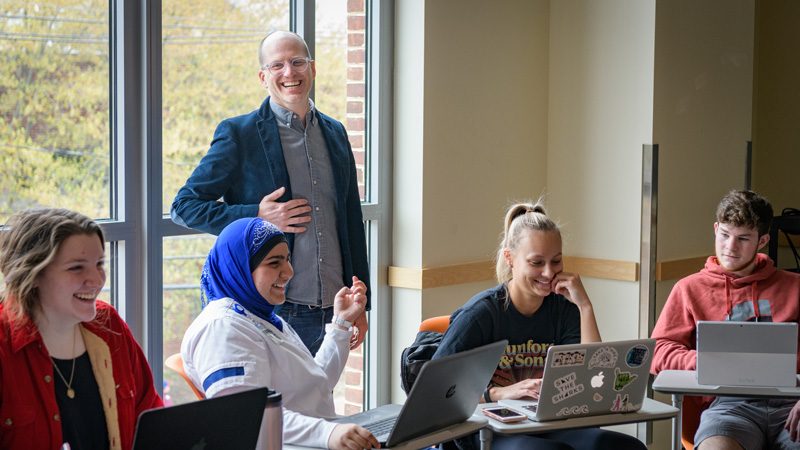
The primary objective of the College is to educate students to become engaged citizens and future leaders who understand disciplinary complexities and can apply quantitative and qualitative reasoning for collaborative problem-solving. Both the demographics of students and the job landscape are rapidly changing.
The College will develop a multiple-pronged, dynamic strategy that will strengthen existing degree programs and will offer hybrid and online degree programs, certificates, affinity programs, and micro-credentials. In this way, the College will continue to prepare a more diverse and equitable student body and will address current scientific and societal issues as well as dynamic employment opportunities. By hiring and supporting talented faculty, along with providing undergraduate and graduate student advisory services, the College will help students to be able to pursue complex research questions, to forge effective career paths, and to engage in lifelong learning.
Undergraduate Programs
- Grow undergraduate enrollment by developing high school pipeline programs, affinity programs, and articulation agreements with community colleges.
- Expand experiential learning opportunities by increasing the number of students engaged in faculty-led research and promoting hands-on field education experiences that complement degree programs.
- Increase retention and four-year graduation rates by launching a student success center to provide a one-stop location for optimizing academic and career advising and co-curricular programming and mentoring.
- Evaluate, revise, and modernize the degree programs, including 4+1 and online courses to reflect the rapidly changing educational landscape, evolving societal challenges, and job market demands.
- Expand educational opportunities to non-traditional students by developing flexible and innovative academic programs to enhance access to education.
- Develop students to be life-long learners by emphasizing strong disciplinary and quantitative skills, and non-technical skills so students will be agile in navigating the changing job landscapes
Graduate and Professional Programs
- Increase graduate student enrollment by developing and implementing a holistic and best practices recruitment strategy and maintaining competitive stipends.
- Enhance student success and better prepare graduate students for diverse career pathways by collaborating with the Graduate College to build a robust Professional Development Program.
- Build and enhance the graduate student cohort between the Lewes and Newark campuses by providing shared academic experiences, activities, and encouraging social gatherings.
- Establish professional master’s and certificate programs in order to diversify the graduate student body and enhance student success in addressing current scientific challenges and the evolving job market.
Sustaining and Advancing Innovative Research and Discovery
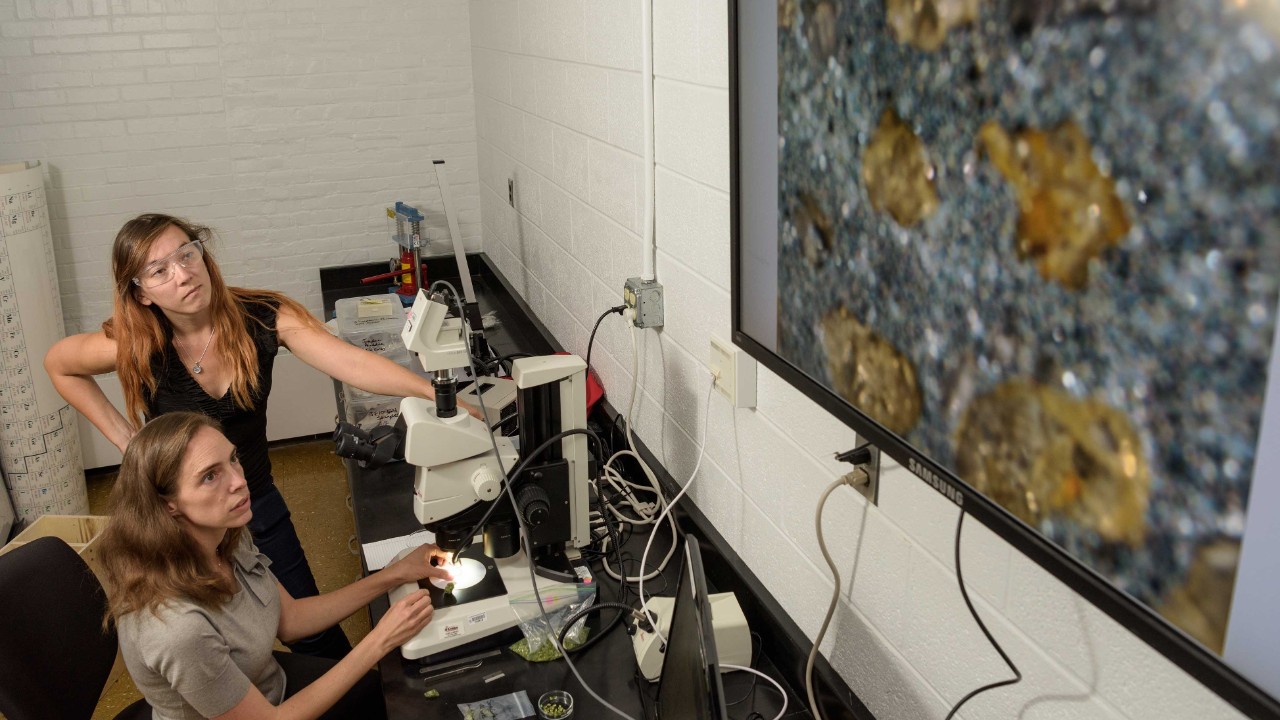
Excellence in research and discovery is central to the identity of faculty and students in CEOE. Our faculty and students address many of Earth’s grand challenges that require a deep understanding of the Earth as a system (biosphere, hydrosphere, atmosphere, cryosphere, and geosphere) and the responses to physical and human stressors. We recognize the need to explore more interdisciplinary and holistic approaches in order to advance discovery and innovation, and address the increasingly complex environmental issues that affect society.
With its deep capabilities in climate science, environmental geochemistry, marine and terrestrial ecosystems and growing expertise in solid earth, natural hazards and coupled human-environmental system analysis, the college has unique opportunities to catalyze and shape more collaborations across the College and the University. In this way, emerging complexities and existing knowledge gaps will be addressed. We fully expect that developing resources towards intra- and cross-college collaborations that move toward convergence research will also help to strengthen state and local community capabilities for mitigating and adapting to growing global threats such as climate change and environmental degradation while addressing urgent demands on the planet’s critical resources for clean energy, air, water, and food.
- Establish a world-class Climate Change Science and Policy Hub to address new pressing challenges from climate change and its impact on society, while elevating the profile of climate change research at the University of Delaware.
- Develop cross-college strategic faculty mentoring and hiring plans to enable recruitment and retention of outstanding faculty while promoting greater inter-connectedness between departments to amplify faculty and student success.
- Establish college research theme areas to leverage cluster hires, strengthen cross-college collaborations, and expand funding potential and capacity to advance CEOE emerging growth areas.
- Promote and facilitate convergence research initiatives that build upon disciplinary strengths and human-environment coupled thinking to facilitate intellectual collaborations and offer multi-institutional proposal opportunities.
- Enhance national and global recognition of faculty research excellence to increase the number of faculty receiving national and international awards and serving in leadership positions in professional organizations by increasing communication efforts that promote faculty research and discoveries and global awareness of our research programs.
- Enhance innovation and entrepreneurship to provide solutions for a more sustainable future and accelerate the transfer of ideas into the marketplace for our faculty and students.
Investing in Capital Infrastructure
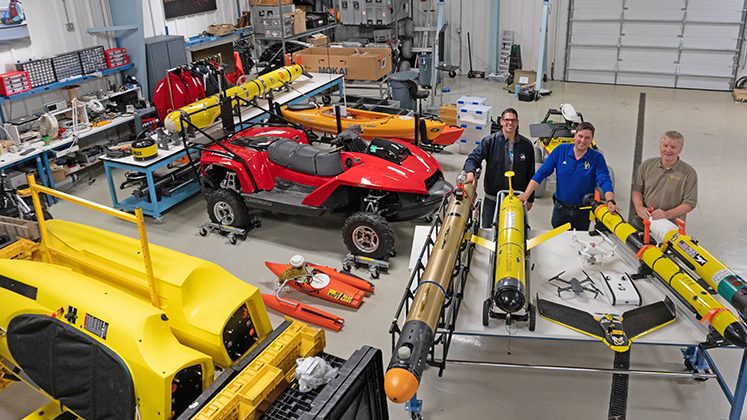
A first-class capital infrastructure is essential for attracting and retaining intellectual leadership and for enabling the College to address research and academic priorities more effectively. The current distribution and quality of physical spaces create some difficult challenges and are impediments to the future growth of the College. The immediate challenges are related to new laboratory space in Newark for additional hires and teaching laboratory spaces on both campuses. To address some of these needs with limited resources, we will move towards a model of shared, thematic research spaces. A high priority of this strategy involves a capital infrastructure fundraising campaign orchestrated with the UD Development Office and with University-level advice and resources.
- Establish a CEOE infrastructure advisory committee to outline policies, establish a transparent process for space allocation, and help evaluate the quality of the spaces, prioritize renovations, and enhance operational efficiency through space-saving measures.
- Develop multi-purpose laboratory and teaching spaces to facilitate collaborations for competitive research programs while alleviating some of the space problems.
- Enhance greater connectedness between the Newark and Lewes campuses through instructional technology infrastructure in the classroom and laboratory spaces.
- Sustain the legacy of ship-based research, education, and experiential learning by leveraging the R/V Hugh R. Sharp as a recruiting tool and developing robust marketing and development plans to diversify funding of the R/V Sharp and R/V Joanne Daiber.
- Expand living and learning community in Lewes by working to enhance the University’s footprint on the campus, including through seeking public-private partnerships to provide new living facilities for students in Lewes.
Realizing Substantial Advantages from Diversity in Education and Research Environments
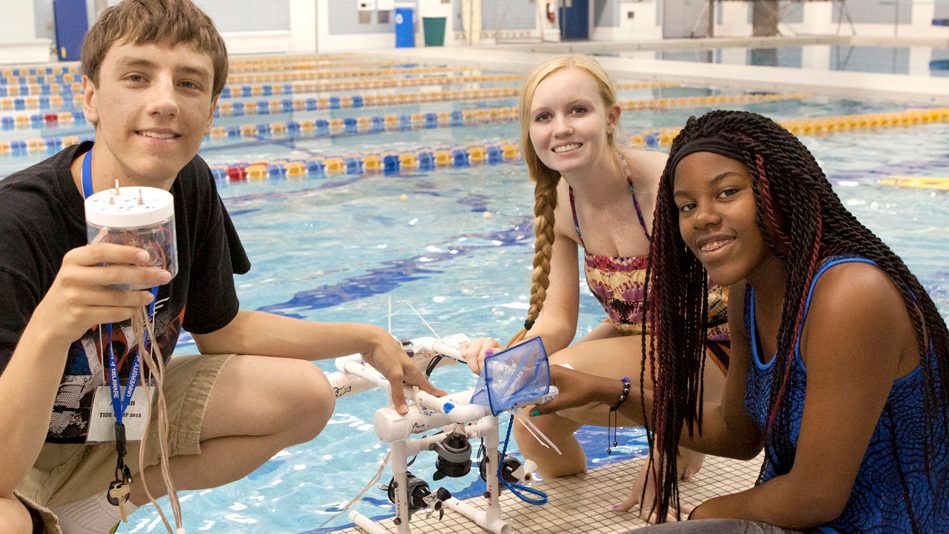
Diverse campus experiences improve the educational growth of all students by promoting inclusion and social equity and by preparing students for the diverse world they must navigate upon graduation. Diversity is a core value for the university and for CEOE’s education and research mission. Diversity and inclusion mean both the recognition and appreciation of different backgrounds, values, and ideas, as well as a commitment to ensure that all people are treated equally. Increasing the diversity of faculty, staff, and students in ethnicity, culture, race, religion, and gender requires a targeted and sustained program across the College. The College will work with UD’s Office of Equity and Inclusion to access their resources and to seek advice on proven strategies that increase the diversity of the faculty and other role models that will lead to a greater diversity of the students.
- Increase faculty and staff diversity by requiring all search committees to participate in implicit bias training and proactive recruitment to increase the represented minority applicant pool.
- Attract and recruit underrepresented students by broadening funding sources, leveraging alumni donations, and proactively engaging with minority-serving institutions and organizations.
- Cultivate a welcoming and inclusive community by developing diversity policies that promote respect and appreciation of human differences, a College Code-of-Conduct and an annual bystander intervention training to promote safe work environments.
Enlarging Local to Global Engagement through Partnerships and Education
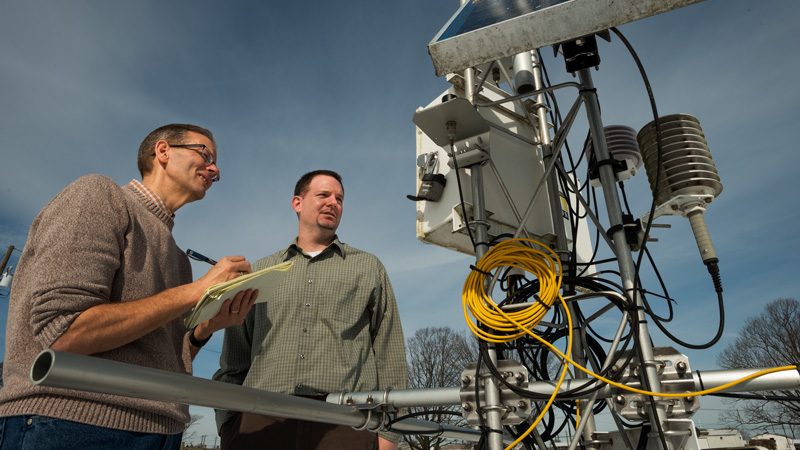
The College seeks to ensure that research findings and student experiences have positive and significant effects, particularly on local communities. Professors and researchers are well poised for developing sound science related to society’s environmental challenges. The College and its faculty, staff and students have outstanding opportunities to work closely with affiliated groups that can assist with promoting and translating reliable science for state and local governments and communities to address critical needs and to produce creative solutions and adaptations. The strategy is two-pronged: first, deepening engagement with faculty and researchers in meeting the evolving demands of regional stakeholders related to coupled human-environmental systems, such as developing hazard mitigation plans and supporting natural resource sustainability in the Delaware watershed and beyond; and second, linking the outreach strategies closely to the educational mission.
- Facilitate deeper connections to enhance outreach by continuing to forge stronger links through external partnerships around the globe and with internal groups like Delaware Sea Grant and the Delaware Geological Survey.
- Foster collaborations and catalyze innovations across the University by seeking opportunities for CEOE faculty to join cross-college research efforts that are part of emerging interdisciplinary research areas based upon core strengths in fundamental sciences.
- Enhance engaged scholarship by encouraging faculty and students to address local community concerns and by facilitating broader dialogues to identify shared research questions addressing societal challenges and potential local impacts. The College will broaden engagement with local communities to serve as an active partner and institutional resource in building capabilities in adaptation and resilience and in sharing complex scientific information.
- Enhance science literacy within the local communities across Delaware through sustained marketing of existing informal education programs and a deeper reach into underserved communities.
- Expand engagement around the world through:
- Climate Change Science and Policy Hub (see page 4).
- New collaborative research partnership with developing nations.
- Serving Small Island Developing States (SIDS).
Strengthening Development and Amplifying the Network of Alumni
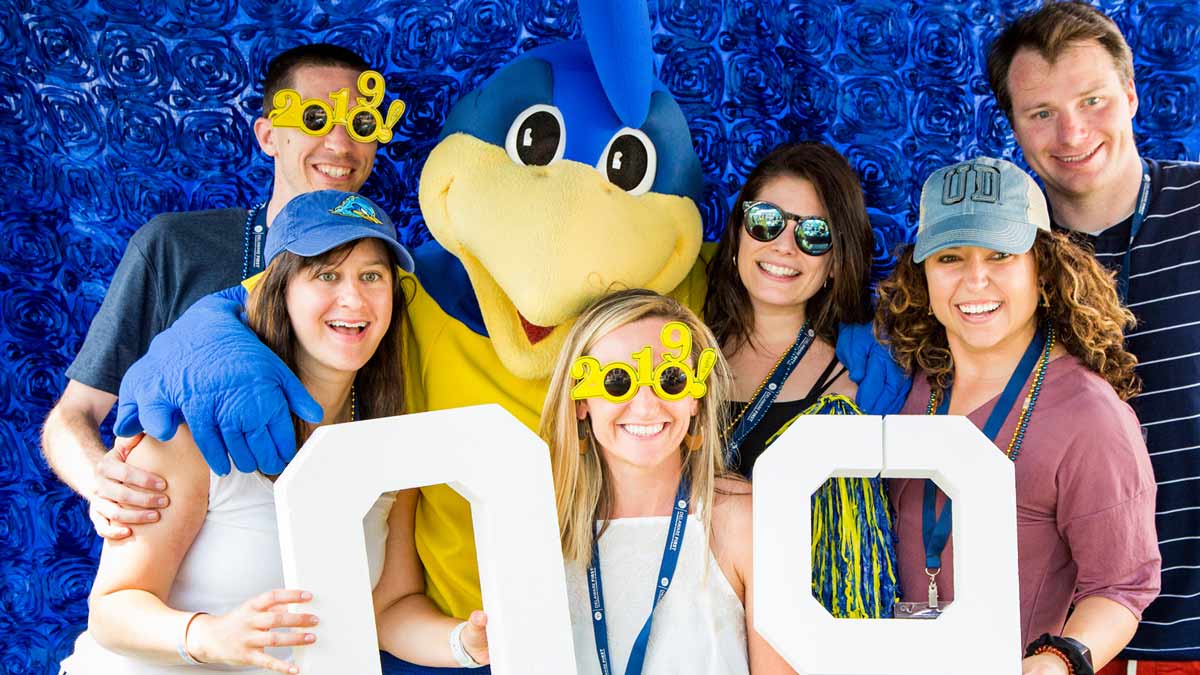
The College’s development strategies and alumni relationships are essential pillars for its continued success and the ability to raise external resources for meeting our goals. Cultivating, mentoring, and connecting with our students, (e.g., the graduate student cohort programs) lays the groundwork for enhancing community and philanthropic ties. Communicating our story effectively and broadening engagement strategies will expand the College’s reach across a variety of audiences (including alumni and volunteers, friends and community, corporate partners, and private foundations).
- Enhance engagement with alumni and friends through broader and sustained reach into national and international networks through social media and other platforms, developing more personalized communications, and preparing new graduates to remain engaged and become alumni donors.
- Foster existing relationships across the region and leverage tactical support from the development office to engage non-alumni in college activities such as public lectures (e.g., Ocean Currents Lectures) and Coast Day events, and mobilize a regional community that translate to a wider net of CEOE philanthropy.
- Increase resources for faculty and student support through the Delaware First Campaign to establish endowed scholarships and professorships and expanding faculty funding portfolios to include corporate and private foundation funding sources.
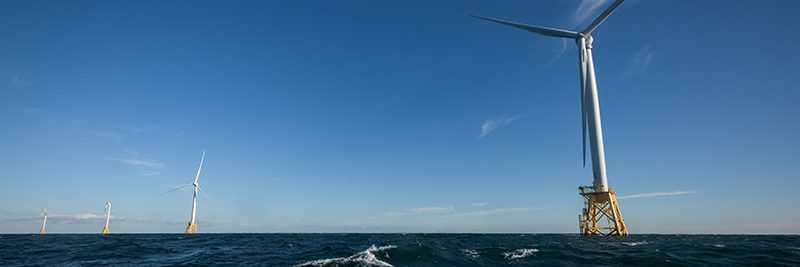
Focusing on this complex thematic area will foster greater cross-department and cross-college collaborations and elevate the profile of climate change research and education at UD.
Formally launched in Fall 2021, the Gerard J. Mangone Climate Change Science and Policy Hub unites scholars and engages policymakers and community leaders while serving as the central resource at the University of Delaware and the region for anyone concerned with climate change and its impacts. The Hub spearheads and supports projects in education, research, innovation, and community solutions by approaching climate change challenges from multiple disciplines so that together we can discover and implement practical solutions for a more sustainable tomorrow.
The Climate Change Hub has been designed as a University-wide initiative, led by co-directors from differing disciplinary backgrounds. A. R. Siders of the Joseph R. Biden, Jr. School of Public Policy and Administration brings a focus on how communities adapt to climate change through her research in UD's Disaster Research Center on adaptation governance, decision-making, managed retreat, and the social justice implications of coastal adaptation. Dana Veron from CEOE is a climate scientist who understands the natural science behind climate change while also bringing extensive experience in climate change education.
